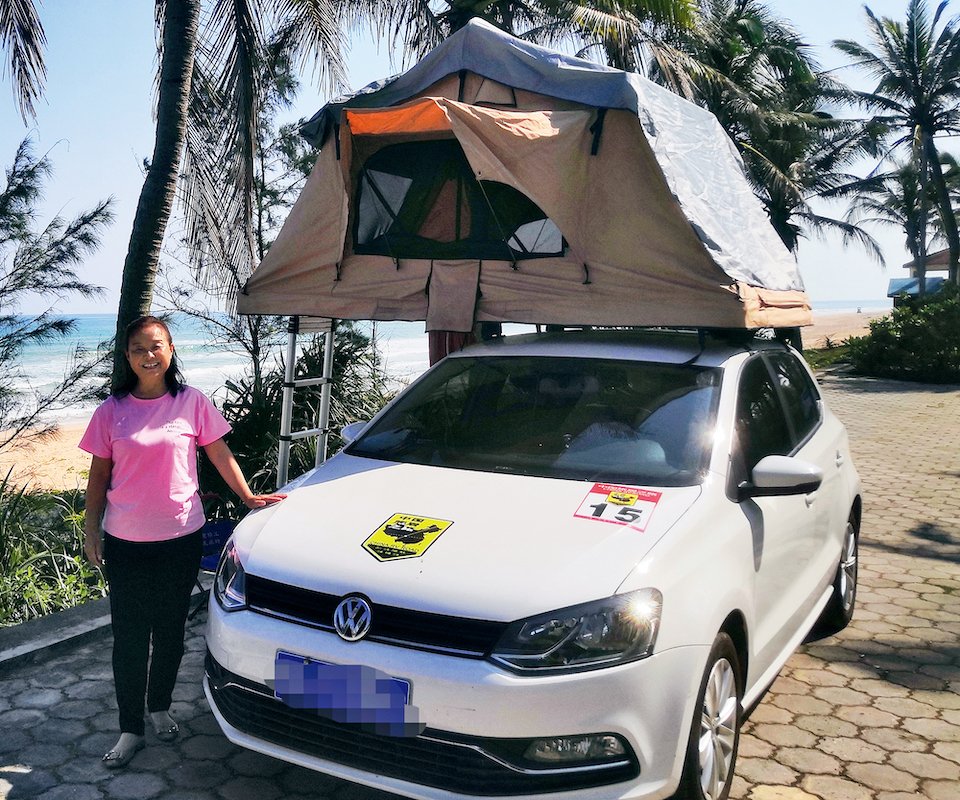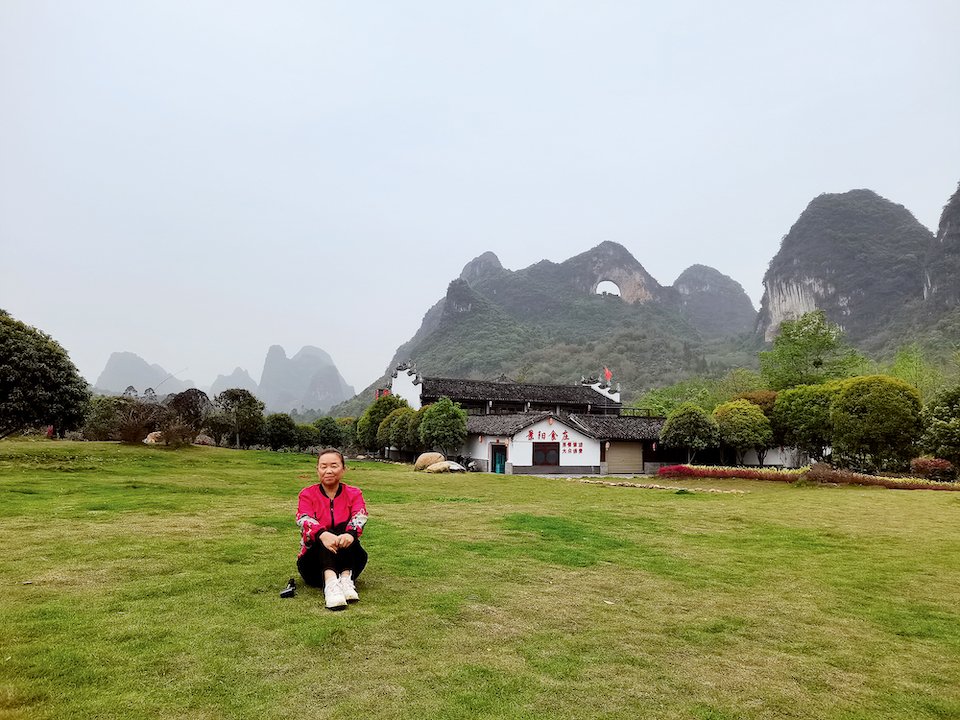Su Min left an abusive husband and the monotony of routine life to seek freedom and happiness on the open road
The beige tent measures 1.4 meters in width and 2.4 meters in length, and 57-year-old Su Min set it up all by herself on the roof of her white car. For more than 200 nights, she has slept in this tent alone without a husband to take care of, housework to finish, or endless ridicule to endure.
The former housewife from Zhengzhou, Henan province in central China, has been driving alone across the country since September 2020, after she decided to leave an abusive marriage of 30 years. “The first half of my life has been mainly about enduring; I was a wife, a mother, and a grandmother,” Su tells TWOC. “One day, I made up my mind to live for myself.”
In the past eight months, she drove largely alone through Xi’an, Chengdu, Chongqing, Kunming, Shangri-La, and Haikou, traversing China from north to south, east to west. Along the way, she shot videos of beautiful scenery and of DIY life on the road: How to set up a tent on the roof of a car, how to hang clothes under a tent, and even how to cook in a parking spot.
Leaving home was not an impulsive decision for Su. At 23, in order to escape from being a caretaker for her younger brothers at home, she married a man whom she had met only twice before their wedding. For the next 30 years, Su did the housework while enduring physical abuse from her husband, who once hit her with a chair. She raised their daughter, and later cared for their grandson. In 2018, she was hospitalized for depression after she tried to harm herself by stabbing her own chest during an argument with her husband.
For her daughter’s sake, Su never considered divorce. In 2015, she saw an online video of a middle-aged woman traveling alone, and decided to try it herself. She took various part-time jobs over two years, and took out a loan to buy a car for over 100,000 RMB (which she has now paid back by herself), despite her husband ridiculing every step of the plan. Her first destination after leaving home was Chengdu, where she reunited with an old friend.
Su’s videos of her travels have resonated with other older women, who leave comments that commiserate about their unhappy marriages, and with younger women who express their sympathy for their mother. The message that appears most frequently in the comments is: “I hope my mother can live for herself.” Of any group worldwide, women over the age of 55 have the highest rates of depression at 7.5 percent, according to a World Health Organization study released in 2015. The same demographic in China was identified as high risk for depression by a 2018 mental health study by the Peking University No. 6 Hospital and the Peking University Institute of Social Science Survey, which also recorded a higher rate of depression among the rural population (3.7 percent) than the urban population (3.4 percent).
Su’s journey quickly attracted netizen interest. Her tragic backstory emerged after a documentary described her life in detail. Today, Su has more than 1.35 million total followers on social media—including platforms like YouTube, Douyin (TikTok), and Weibo—and she was taken on a tour by the director of Shanghai Disneyland when she arrived in the city. On International Women’s Day in March, online luxury goods vendor Net-a-Porter invited Su to shoot an advertisement showcasing independent women in different occupations. “I’ve folded 73,219 pieces of clothing in my life; this is the first time I’m packing for myself,” read the words on the screen as footage shows Su ironing her clothes and picking up her car keys to leave.
Su’s own personality has also changed. Her clothes have gradually become more colorful: pink, orange, red, and apple green. “My husband always laughed at me and made me think I was worthless,” she says. “I am more confident now, because out here, I can adapt to any lifestyle.” She hasn’t decided when to go home—maybe in a few years—but tries not to think about that day. If her husband still doesn’t respect her after she returns, she tells TWOC she might consider leaving him for good.
Since March, four other women of Su’s age have joined her self-driving tour. They come from all over China, and have been following Su since her first video. The group plans to drive to Tibet and Xinjiang by October, spend the winter in the warm cities in the south, then tackle other routes across China in the coming year.
“When we’re together, we’re always discussing travel plans. We don’t discuss each other’s family or the past,” says Su. “We went out to find freedom.”
Images courtesy of Su Min
This is a story from our issue, “Something Old, Something New.” To read the entire issue, become a subscriber and receive the full magazine. Alternatively, you can purchase the digital version from the iTunes Store.














